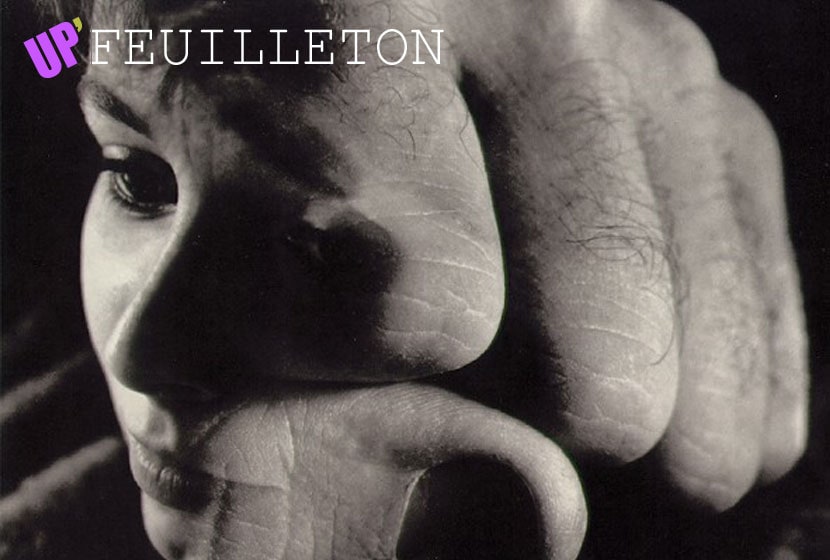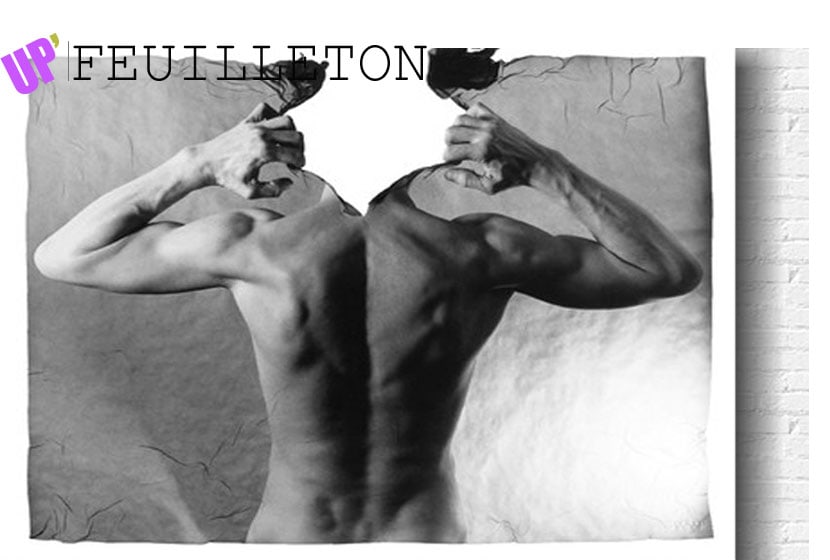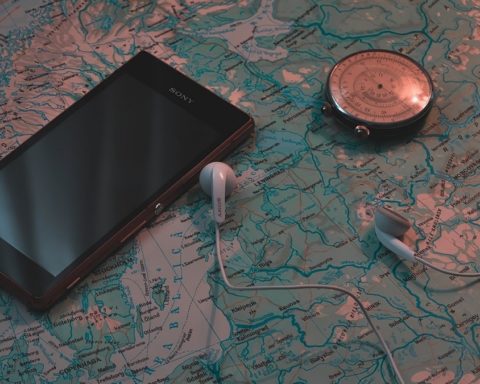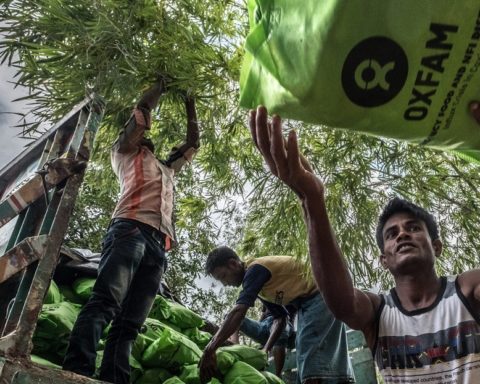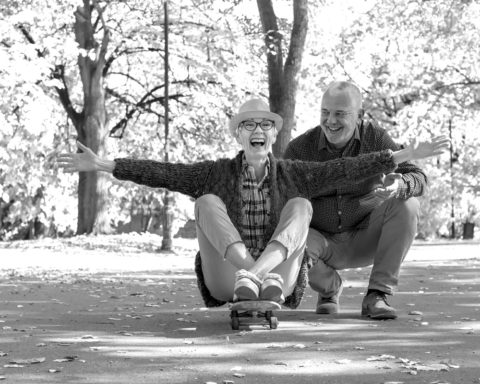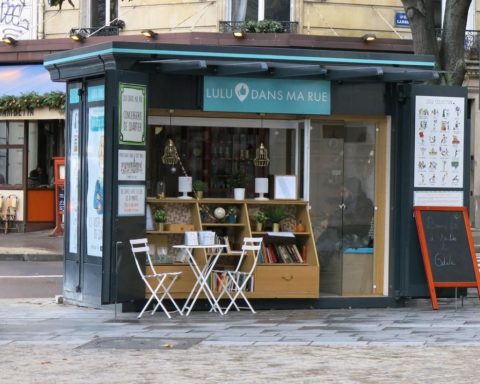Every week, UP' offers you the opportunity to discover a work in the line ofUP'Spirit, i.e. optimism against all odds, and the highlighting of innovative initiatives and daring entrepreneurs. To inaugurate this editorial anchoring, we offer you the best excerpts from one of the latest books by Christine Marsan, "Entering a World of Cooperation - A Neo-Renewal" preview. Introduction.
"We postulate that we have the power to transform ourselves without the engine of fear or disaster. However, in order to achieve this, we need to carry out large-scale metamorphoses, both individual and collective, of our representations of reality, our thought patterns, our beliefs and daily behaviour.
A few announced disasters will show the most sceptical people that our current way of life can no longer be sustained: climate change, the growing gap between rich and poor, the increase in obesity and drug use, the grip of violence in daily life, increasingly terrifying acts of terrorism, the impossible bunkering of the rich, the mediocrity of the spectacle, the dictatorship of insurance, the invasion of time by goods, the lack of water and oil, The rise in urban crime, the ever closer financial crises, the waves of immigration washing up on our beaches, first hand outstretched then fist raised, the increasingly murderous and selective technologies, the increasingly insane wars, the moral misery of the richest, the vertigo of self-surveillance and cloning, will one day awaken the most deeply drowsy sleepers. Disasters will once again be the best advocates of change.
History forks only when adventurous people, anxious to safeguard their freedom and defend their values, advance the cause of mankind, usually to their own great misfortune. »
Jacques Attali
The balance sheet is severe, and it seems important to us not to get bogged down in the catastrophic, paralysing and guilt-ridden effects that such enumerations suggest. Successive crises of all kinds shake up the system in which we live and invite us to rethink it as soon as possible if we want to avoid disappearing with it.
The purpose of this book is to raise awareness that we are now experiencing a major paradigm shift in our civilization, and indeed in humanity. We are contemporaries and co-creators of this fundamental change, which is why it is still difficult for us to have the necessary hindsight to grasp what this fundamental change consists of. The aim of this essay is to make this change more comprehensible; a certain number of phenomena, put together, lead to a different reading of our daily lives. A new meaning emerges, highlighting our world in profound transformation. Thus, instead of maintaining gloom and pessimism, we are demonstrating our formidable forces of resilience and encouraging everyone to mobilize their resources to put them at the service of this major metamorphosis.
Economic and technological globalization has placed the human being in the field of the complex and systemic. Consequently, the multiplicity of crises that we are experiencing can be understood as the manifestation of a crisis that is also systemic, involving all areas of life: ecological-climatic, economic, social, societal, political, technological, demographic, anthropological, etc.
The revolution in quantum physics explains this paradigm shift particularly well. It is having an effect on our representations and the way we approach everyday life. We are questioning the foundations of our humanity and this has many consequences. On the one hand, man's place has become insignificant in the face of the vastness of the universe; we are therefore witnessing a rise in narcissism, in an attempt to compensate, and on the other hand, the social violence that arises in various fields reflects the deep unease of citizens. They manifest the reality of this transformation of society, a chaos characteristic of the intervening periods. Violence that expresses panic in the face of the questioning of referentials: those of the modern paradigm largely shaken, and those of the emerging paradigm, still under construction. In the meantime, fears and anxieties resurface and with them the imaginary of the Apocalypse, as the only response to the "crisis". In the face of chaos, feeling fearful and helpless, many are waiting for a providential saviour who gives pride of place to the archaic model of the leader of the pack, in a word the hierarchical pyramid model.
For some people caught up in fear, inertia dominates, everything is slowed down, ideas fail to be transformed into action, and for others, powerlessness and frustration translate into violence.
 The question is whether we will fall into the common understanding of the Apocalypse associated with catastrophes, wars and revolutions or whether we will choose the meaning of Revelation and awaken our riches, our life force to approach this new time in the history of humanity.
The question is whether we will fall into the common understanding of the Apocalypse associated with catastrophes, wars and revolutions or whether we will choose the meaning of Revelation and awaken our riches, our life force to approach this new time in the history of humanity.
Observation of the social sphere leads us to observe a craze for various trends: a return to the Middle Ages, from which we draw sources of romantic works (magic, Knights of the Round Table, Templars...) which revive the values of courage, exemplarity and heroism that we perhaps need to pass the milestone of this decisive change in civilization. On the occasion of 11 September 2001 (1), we mentioned the "return of the repressed" coming to bring back to the forefront the dark and unresolved parts of human history and also our appetite to seek in the heritage of humanity the resources to rethink ourselves. Thus, we can see the borrowings from the 19th century, for example, mixing nascent industrialization, republican fervor, political enthusiasm, romanticism, symbolism, curiosity for spiritualism and the birth of psychoanalysis. Films such as Harry Potter or Hugo Cabret have chosen the historical framework of the 19th century to tell stories that re-enchant the world. We also observe our keen interest in the First Peoples, living witnesses of the first moments of our humanity and a source of inspiration for community life and modes of governance. And even more recently, there has been regular mention of the Neolithic period. According to Michel Serres, we are contemporaries of an evolution of our humanity as important as the one that took it from the Paleolithic to the Neolithic. We are still searching in the thread of human history for traces and clues to help us understand this turbulent period in which the majority of us are struggling and some of us are finding signs of the world that is coming.
The challenge of this new paradigm is to co-construct, i.e. all together, from the vitality and innovation of citizens, the world in the making. This implies behaviours of mutual aid and solidarity that are only possible if we act on the basis of values of peace.
 Quantum physics takes us de facto out of the dual and binary world we are used to. Thanks to it, we enter the different dimensions (micro and macro) of the universe where several realities can coexist. It is then that ET (link, reliance, reconciliation) appears, meaning that several things are possible at the same time (wave and particle). The way in which quantum physics observes the world then meets the way in which peacemakers conceive of the relationship to the other in order to get out of the dichotomy and war. Physics reconciles space and time, peace reconciles opponents and complexity weaves the links between disciplines that illuminate our future. Thus each component of our daily life pushes us to conceive of ET, the link between things, the interdependence of actors and their environment.
Quantum physics takes us de facto out of the dual and binary world we are used to. Thanks to it, we enter the different dimensions (micro and macro) of the universe where several realities can coexist. It is then that ET (link, reliance, reconciliation) appears, meaning that several things are possible at the same time (wave and particle). The way in which quantum physics observes the world then meets the way in which peacemakers conceive of the relationship to the other in order to get out of the dichotomy and war. Physics reconciles space and time, peace reconciles opponents and complexity weaves the links between disciplines that illuminate our future. Thus each component of our daily life pushes us to conceive of ET, the link between things, the interdependence of actors and their environment.
This radical shift in thinking from the values of war to those of peace did not happen overnight. We wanted to recreate the slow process that it took for our consciousness to evolve from the logic of war with its devastating effects, whether on human beings or on nature, to that of peace, which underlies the attitudes of cooperation and solidarity needed to manage the complexity of our globalized world. After centuries of detaching ourselves from the determinisms of nature and proudly managing to control it, we have become aware of the wanderings into which this arrogant separation of the laws of nature has led us. Today, the systemic crisis and the environmental effects of our excesses (pollution, waste of natural resources) make us aware of our indisputable place in the reign of the living. It is then the rise of ecology: a way of thinking and above all multiple actions to modify our environment and our habits.
It is by identifying the values that nourish civilizations that we can understand the roots of metamorphoses and paradigm shifts.
It is no coincidence that today we are fascinated by the first peoples, whom we are finally considering with interest. We are looking to them for a new form of wisdom, which explains our attraction to shamanism or animism. We also look at their daily way of life, peaceful (for some) and respectful of nature, detached from the notion of property. Perhaps they have found the keys to life as we struggle in the miasmas of a dying society? Finally, it is above all in the East that we find the answers to our needs for transcendence and wisdom. Buddhism and Taoism seem to hold the keys to overcoming our suffering, something that psychoanalysis has not fully succeeded in achieving.
 At the same time, the level of consciousness has changed considerably in the West, particularly as a result of the genocides and barbarities perpetrated in the 20th century. Peace then became a vital necessity for the world of tomorrow. It appears to be an integral part of economic expansion. The signs of this development are to be found in everyday practices such as non-violent communication, win-win negotiations, ethical management, sustainable development and corporate social responsibility. Many elements contribute to a different consciousness.
At the same time, the level of consciousness has changed considerably in the West, particularly as a result of the genocides and barbarities perpetrated in the 20th century. Peace then became a vital necessity for the world of tomorrow. It appears to be an integral part of economic expansion. The signs of this development are to be found in everyday practices such as non-violent communication, win-win negotiations, ethical management, sustainable development and corporate social responsibility. Many elements contribute to a different consciousness.
It is through dialogue, the only field of encounter where differences are transformed into convergences and where the world of the OR gives way to that of the AND that agreements, peace treaties and conflict resolution are possible.
Since the events of September 11, with the hindsight of a decade, we can report on the signs and concrete facts that attest to these movements on the move. "The processes of decomposition within our civilization do not make it possible to perceive the possible processes of recomposition. (2). "We have written this book to shed light on latent processes that are not always visible to demonstrate the vitality of our civilization, which holds within it the potential for resilience to rise from its ashes. As Edgar Morin reminds us in the face of the acceleration of technological processes, there is a delay of consciousness over experience. As Ortega Y Glasser said: "We don't know what is happening and that is precisely what is happening. " And Hegel: "The bird of Minerva always takes flight at dusk. The delay becomes more pronounced in an accelerated time. "And it is precisely to compensate for this delay in thinking and awareness of facts that, by reading retrospectively, we can look ahead and prepare for the improbable with renewed resources.
A system that does not have the means to deal with its problems is condemned either to regression, even death, or, by surpassing itself, to metamorphosis". (3)"
We need to get out of the framework of past patterns, heavy establishments and harmful packaging to reinvent ourselves. And this will be possible as long as we have a clear vision of the elements that have brought us to where we are today. This is in order to consider what we need to do to break out of anachronistic economic and political systems, such as obsolete systems of thought and patterns, and reach regenerated horizons.
We conclude on the fact that the ecological emergency, which has become a planetary priority, implies global solidarity and fraternities. Inspired by the observation of nature, research on biomimicry tends to tune the creativity of nature with applications to the industrial world (aerodynamics, thermodynamics...) and more broadly social world (urban planning, mode of cooperation, relationship to resilience). They demonstrate that life holds the keys to cooperation and the means to bounce back following the devastation of ecosystems. Let us learn from them.
Centralized powers have demonstrated either their weaknesses or their wanderings, or even the dangers they pose to our ethical ecology. Yet, many citizens feel the need to express directly through the incredible variety of their initiatives their commitment and motivation, taking up the responsibility for major changes in our humanity. It is still necessary to see it, to report on it, to recognize it and to listen to the substantial changes it brings about in our humanity and our daily lives. We identify the components of this new humanity and the modalities of the existential and humanistic, even political, commitment, by proposing to reconcile ethics and democracy.
Finally, action to curb pollution and the depletion of energy resources can only be taken on the basis of the values of peace demonstrated on a daily basis. These values can be learned and are based on a general evolution of consciousness. Peace already begins at the heart of oneself. It then acts in the collective and draws other ways of being and living together.
This can only happen if we manage to overcome tensions and reconcile today's positive achievements and achievements with the demands of the world to come. We are moving towards a renewal of our democracy, a political regime that restores sovereignty to the citizens who are now clearly the instruments of change in the world. From the four corners of the planet, initiatives are emerging that demonstrate the vitality of peoples and their determination to tackle the enormous problems caused by deregulated liberalism, unlimited growth and globalization. Many are acting "locally" to respond to the shortcomings of a global thinking that needs to be revived in order to deal with the global problems of the planet, living species and human beings.
(1 ) See C. Marsan, The imaginary of September 11th. Des cendres émerge un nouveau monde, Editions Camion Noir, 2012. The book was written on the basis of interviews conducted immediately after the attacks of September 11, 2001.
(2) E. Morin, For a policy of civilization, Aréla, 2008.
(3) E. Morin, op.cit.
 ©Christine Marsan, Psycho-sociologist - "Entering a world of cooperation. Une néo-RenaiSens " - Editions Chronique Sociale, 2013.
©Christine Marsan, Psycho-sociologist - "Entering a world of cooperation. Une néo-RenaiSens " - Editions Chronique Sociale, 2013.
Photo illustration: ©Jerry Uelsmann: Symbolic Mutation 1961

